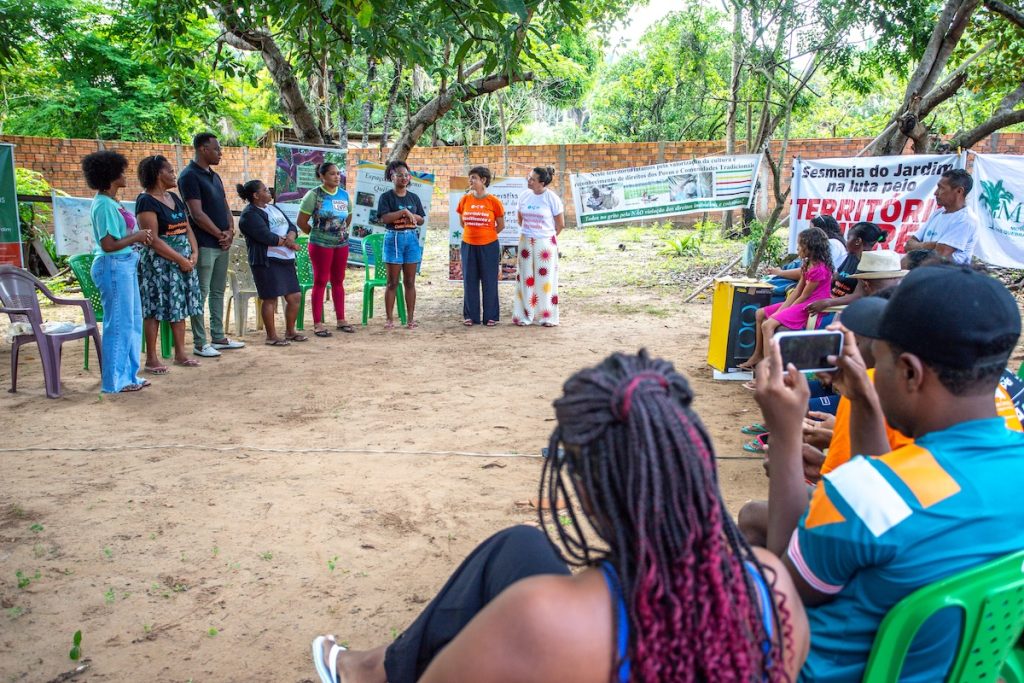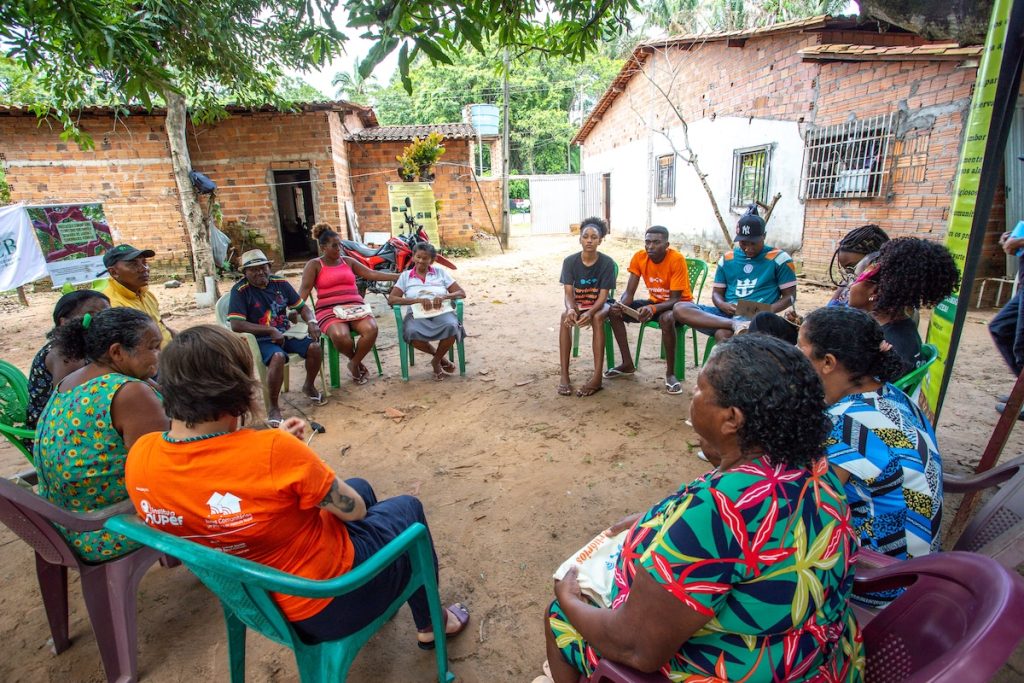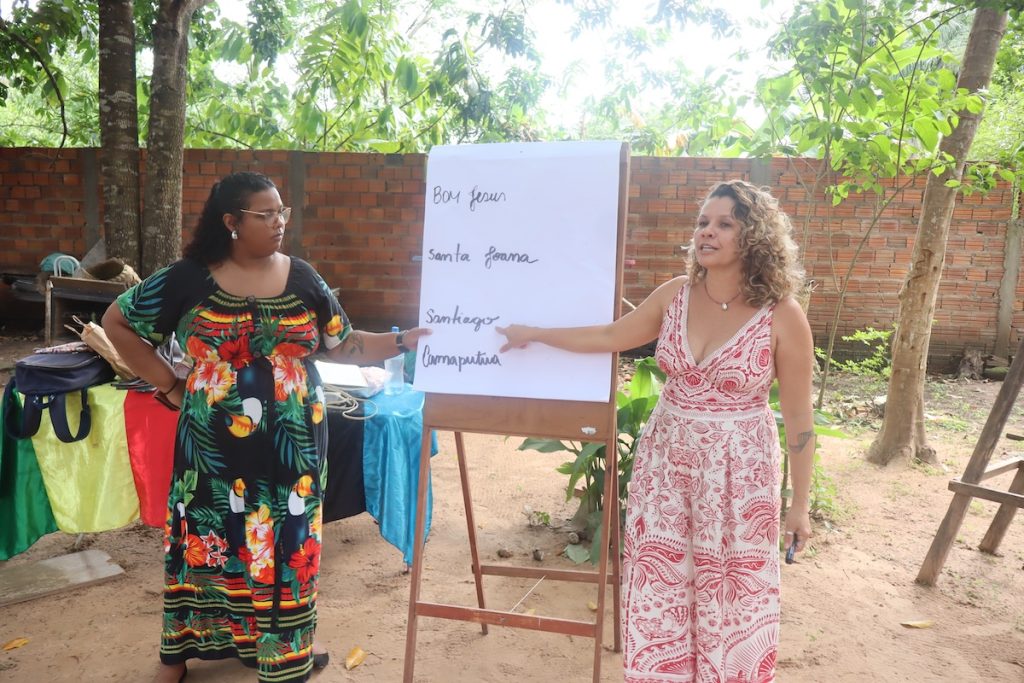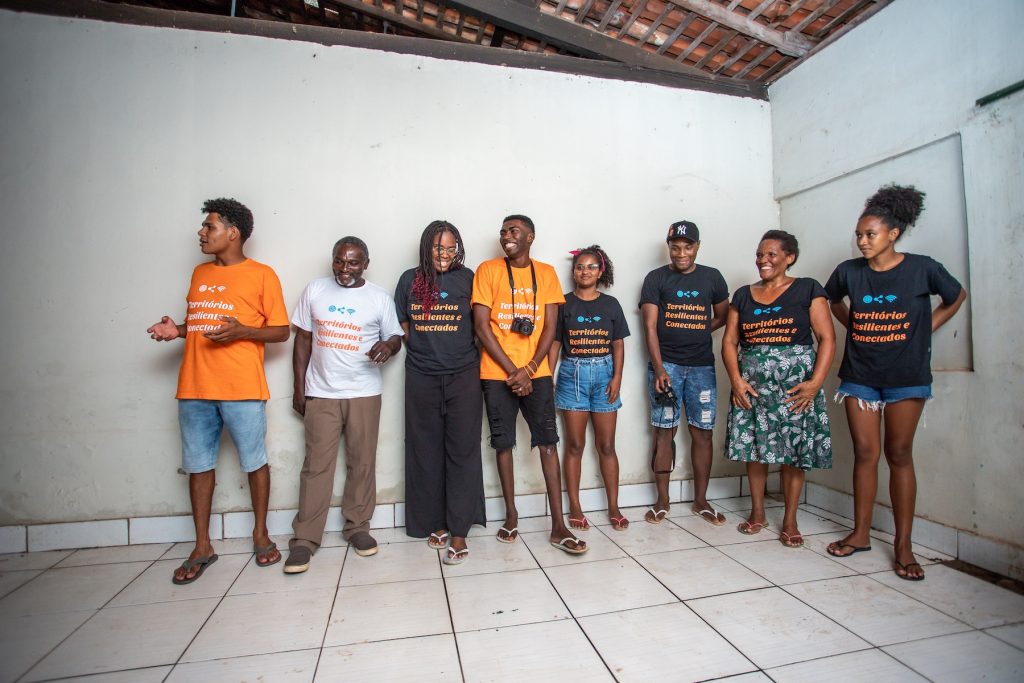Photo: Instituto Nupef.
From Isolation to Innovation: how Internet access is empowering Indigenous and Quilombo communities Northern Brazil
Brazil’s north and northeastern states are home to many unique indigenous and quilombo communities that often lack reliable access to the Internet, which can be integral to living in vast territories facing multiple natural and human threats.
Due to geographic challenges, many people in northern and northeastern Brazil are unserved by traditional radio, cellular, or cabling connection technologies. Because they’re directly below the Atlantic Magnetic Anomaly or South Atlantic Anomaly, which disrupts satellite signals, or because of the high cost and low speed of satellite connections, 39% of surveyed residents of Brazil’s northern states have no landlines or home Internet.
To ensure that these communities can not only reap the economic benefits of the Internet but also use it to protect themselves, the Internet Society Foundation has been funding the non-profit Institute for Research, Studies and Training (Instituto Nupef) to test and enable new long-range wireless networks and upgrade existing equipment and skills.

“Our work, when it comes to community networks, is bringing technologies that previously belonged to the world of hackers – such as exchanging systems, building cables, implementing systems around the world, or sharing specific technical knowledge for people without technical knowledge,” explains Rodrigo Troian, Technical Coordinator for Instituto Nupef, which has been advancing connectivity in urban and rural communities, including in the Amazon, for more than 20 years.
“We work to demystify. We seek to show that equipment doesn’t break, doesn’t bite, doesn’t shock, if you know where to get it and how to deal with it. BOLT does a little of that for us, allowing us to explore technologies that we haven’t used until now. So, we buy equipment, understand how it works and after that, we pass on this knowledge to the people who will actually use it,” he adds.
Instituto Nupef was awarded a $208,596 grant for a BOLT project that ran from December 2022– August 2024 to test cutting-edge wireless technologies using the so-called ‘white spaces’ left over from the transition from analog to digital television.
Through these unused VHF and UHF portions of the broadcast spectrum, the project was able to extend Internet access to three points (out of the six tested) that were largely disconnected from the digital world. Half of the links created to cross the forest worked well, enabling the team to overcome vast distances and empower communities to become environmental stewards and advocates for their rights.

Claudio is a member of the Guajajara Indigenous community in the village of Tururi and a Forest Guardian, part of a grassroots collective that safeguards vast areas of land to prevent invasions, deforestation and other violations. Until recently, he could not rely on a stable Internet signal.
“The Internet is important to us because we’ve tried various systems, such as radio communication, but it’s much easier to use the Internet to communicate with the guards in the forest during surveillance. We’re very interested in connectivity and communication systems because, without communication, we can’t do our job as forest guards; it’s very important to be able to communicate and to be informed,” says Claudio.
Troain adds: “I’ve heard reports of impacts where Indigenous communities who sold cacao changed their relationships with their cacao buyers after learning how to identify the value of cacao on the stock exchange open to everyone. In other words, ‘Hey, you don’t fool me. I have a cell phone connected to the Internet, and I know how much my product is worth today, which is a kind of empowerment through tools. I believe that while the Internet is enriched by the addition of new people, these new people are also enriched by the information the Internet has.”
Although the equipment used in the pilot ultimately did not prove to be a scalable and cost-effective solution for bridging the digital divide long-term, it was able to overcome challenges such as long distances, difficult terrain and limited resources that previously made connectivity projects unfeasible in these regions. In addition, in the final stages of the project, Instituto Nupef learned about a new generation of equipment that is more likely to be a viable alternative, offering improved range, faster data transfer rates, more stable connections and better scalability.

Through the Resiliency program, the Foundation funded a project to improve infrastructure and training for Indigenous and Quilombo communities for work from January 2024 to early 2025.
The project deployed resilient infrastructure in six territories, increasing the resilience of the autonomous system named ‘Tiwa’ to provide secure infrastructure to those facing threats in their territories and building local teams to strengthen the networks’ autonomy. Six communities in Maranhão and Piauí, northern Brazil, received an infrastructure upgrade kit (with cables for fiber optic or low-orbit satellite technology, laptops, routers, portable servers, etc.), access to monitoring systems, the right to use Nupef’s data center infrastructure (Tiwa), and infrastructure improvement to ensure stable and secure service. This was coupled with site visits, face-to-face and remote.
So far, at least 26 people have been trained to install, maintain or repair Internet infrastructure, including 14 young people from the Santa Joana community.

“The main learning from this project has been to make use of technology, strengthening quilombola communities by expanding and creating new community networks and providing safe techniques for installing and using the networks,” says Celso Isidoro Araújo Pacheco, Youth Coordinator for the Quilombos National Coordination (CONAQ).
He points out that the project has helped protect human rights defenders, allowing CONAQ leaders who are part of the programme to communicate in real time about any kind of threat in the community.
According to Maria do Rosário, Leader of the Babassu Coconut-breakers Inter-state Movement (MIQCB), the project “created a positive environment for young people and older leaders come together and share ideas in the same space. As we say in the MIQCB movement, ‘the more you walk, the more you learn’.”
She says the meeting in Santa Joana provided an opportunity to join forces, share knowledge and think about new ways of resisting in the territories.
“The dynamics observed during our visit were a strong sense of trust and mutual respect between Nupef and the community leaders and representatives,” noted Associate Program Officer from the Internet Society Foundation, Gulnaz Kordanova, after a project visit to Brazil. “This speaks to the care the Nupef team has put into these relationships over decades. It was truly inspiring to witness the impressive results and the deep connections between partners and communities. We look forward to seeing the continued success of these initiatives.”
